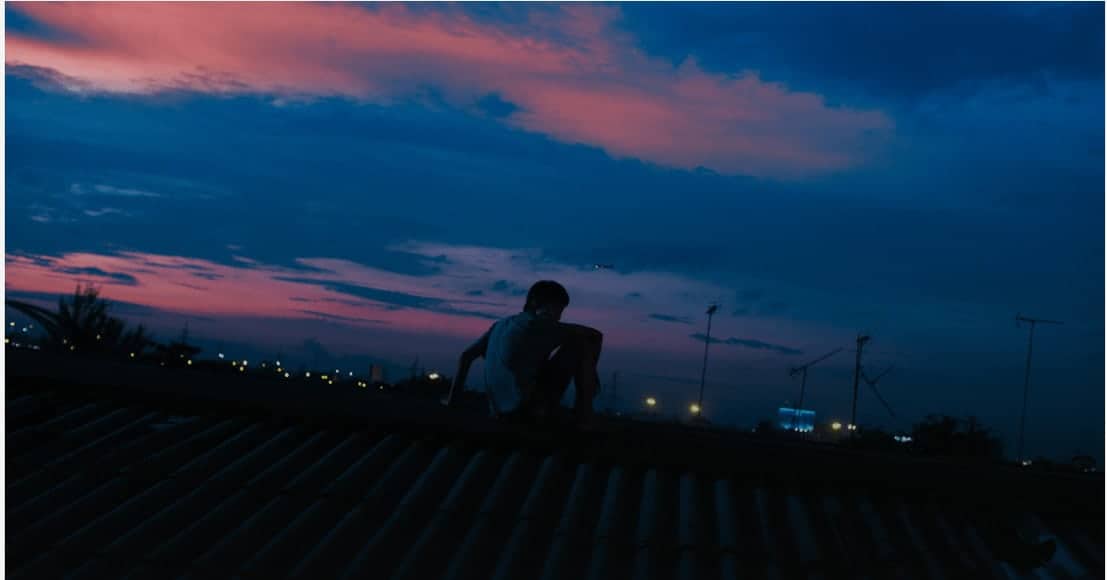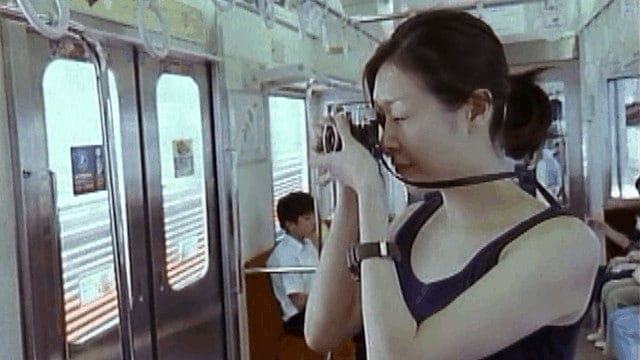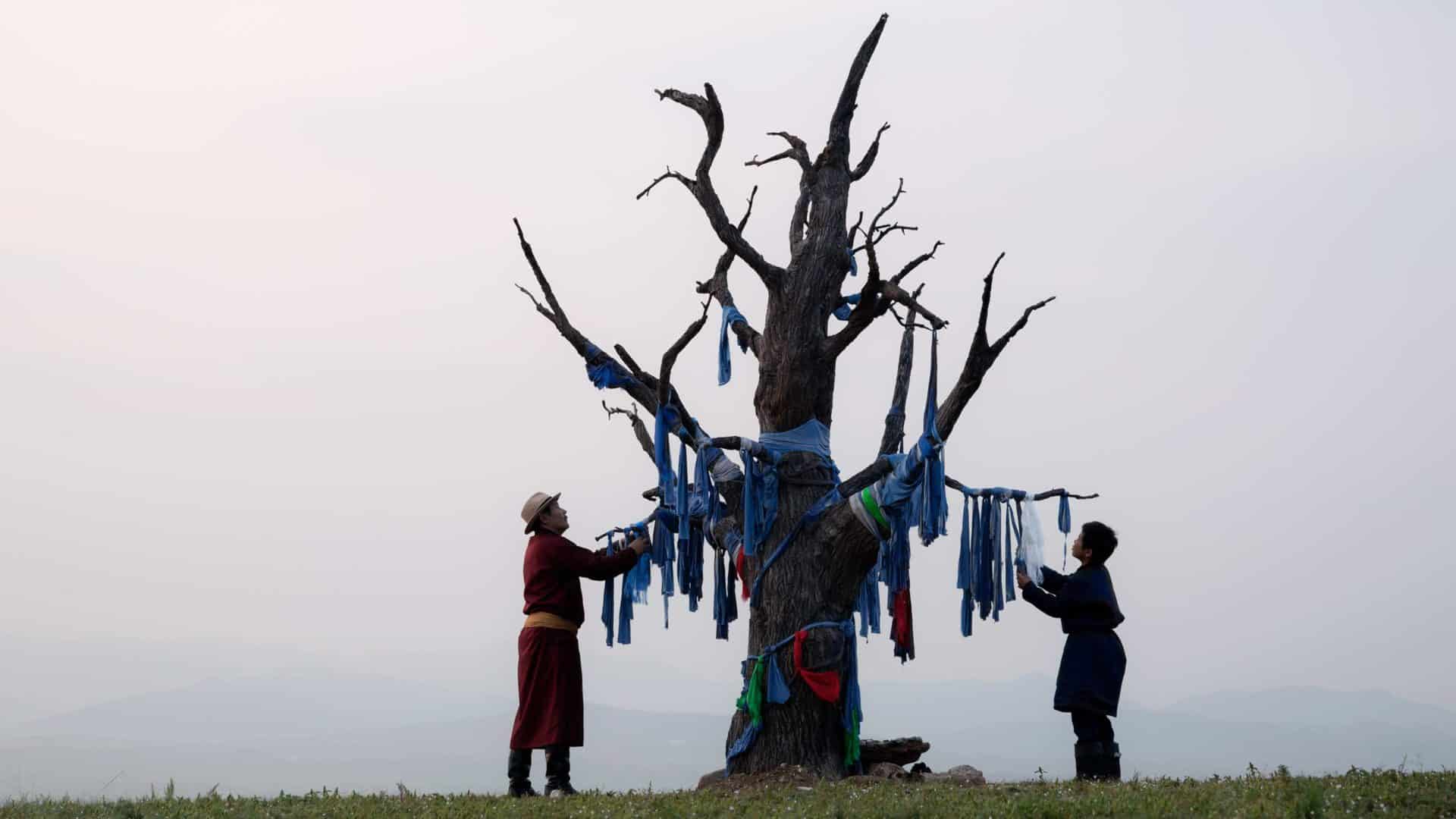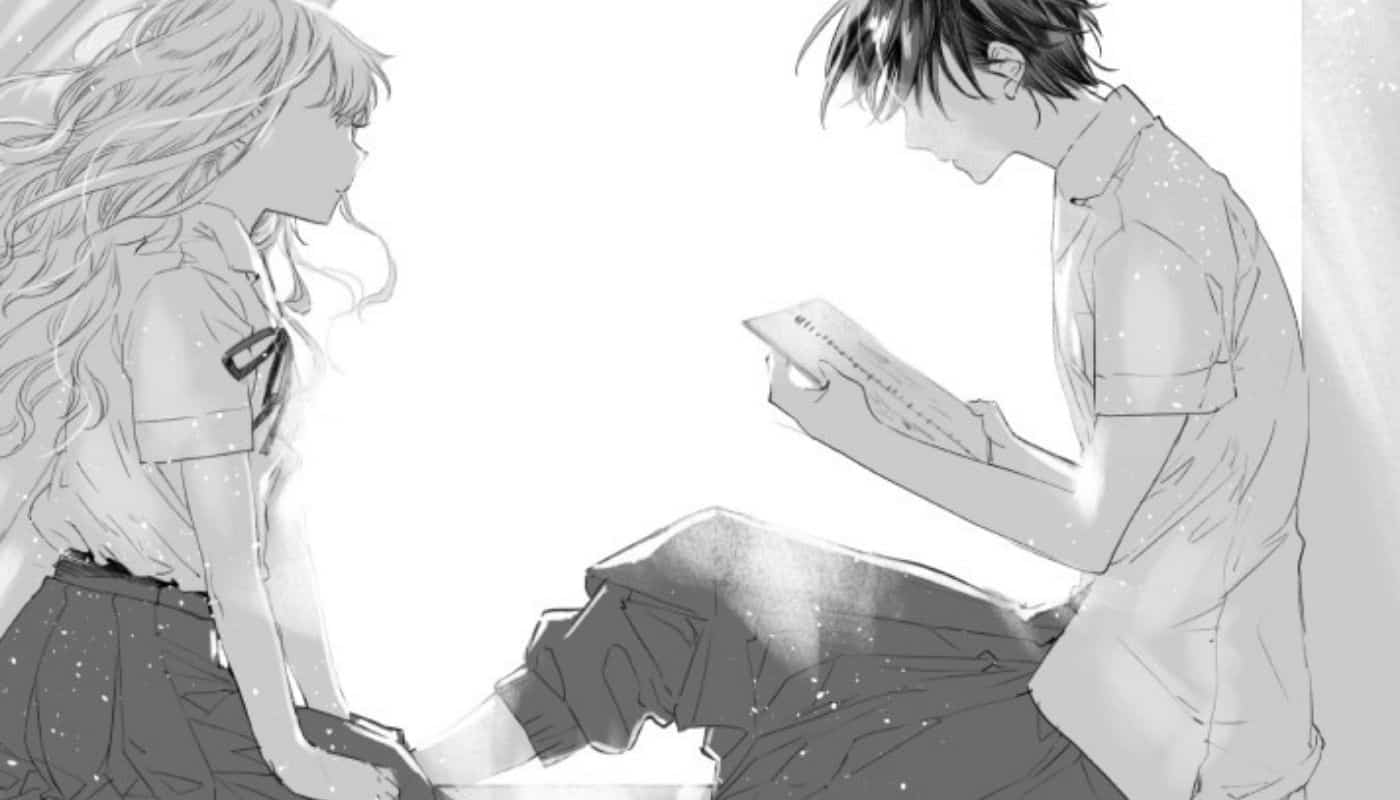Bi Gan's debut back in 2015 was a direct success, netting him Newcomer awards in Locarno and Golden Horse, and introducing him as one of the modern time auteurs due to his cinematic approach, and particularly for a 41-minute handheld single shot that is now considered renowned in the art-house circles. Let us take things from the beginning though.
Buy This Title
The narrative is somewhat vague and minimalist, but the central story revolves around Chen Sheng, a physician who tends patients (and occasionally fixes things for them) in the rundown province of Kaili, with the aid of an elderly assistant who has a very close relationship with him. Chen Sheng is also a poet, with his poems (who were originally written by Bi Gan) frequently being read by him during the film, and also a vivid dreamer, which he also shares with his assistant (and the film's audience, naturally). He seems like a very calm person, but it is soon revealed that he had spent some time in prison, while his interaction with his half-brother, Crazy Face, is rather tense, even becoming violent as some point, particularly due to the latter's neglect of his son, Weiwei. When Chen Sheng learns that Crazy Face has left Wei Wei with Monk, an elderly man he used to work for before going to prison, he embarks on a trip to find him, which eventually brings him to Zhenyuan, where the aforementioned single-shot takes place, tracking his and two other characters, a local seamstress and and a motorcycle taxi-driver.
Bi Gan directs a genuine art-house movie, where the notion that a film can also be experienced through the senses and not logic fully materializes. In that fashion, the “trips” from past to present, from dream to reality, from character in focus to other character in focus are frequent and exceptionally shot, while the whole approach seems to function as a way of analyzing Cheng Sheng in three levels: consciously, unconsciously and through his interactions with other people. At the same time, the film reveals itself as a very personal work for Bi Gan, since, apart from his own poems and the fact that the story takes place in Kaili, where he was born, a subplot revolves around Cheng Sheng searching for a group of traditional musicians of the Miao minority, in which the director also belongs.
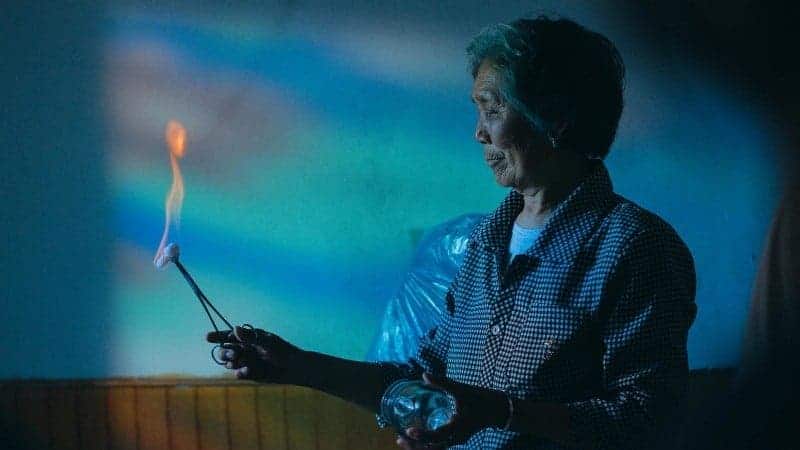
Obviously, apart from the narrative approach, the aspect that makes “Kaili Blues” so unique is the cinematography of Wang Tianxing, who has managed to implement the director's notions in the most exquisite way. The way Chen Sheng is revealed inside the train, and the various scenes on the road are also impressive, while also induce the film with a road-movie quality, although a rather surrealistic one. At the same time, and since part of the film could be perceived as a thriller, through the notion of a man searching for a lost child, it is quite interesting how Bi Gan avoids the visual presentation of violence frequently associated with the genre, by keeping all the violent incidents simply as information heard from the radio, with the recurring theme of a wild man causing deaths repeatedly heard.
Qin Yanan editing also succeeds in the very difficult task of maintaining the overall approach through a pace that seems slow at times, but is quite fast in essence, particularly in the single take and particularly when compared with other art-house films. Qin Yanan's excellent music accompanies the narrative perfectly while a great job has been done in the sound department, courtesy of Liang Kai.
Again expectantly, such a film could not lack elements of pretentiousness and self-indulge, with the poems heard during the movie being the most distinct sample. However, even this aspect is well implemented in the story and in complete resonance with the overall aesthetics.
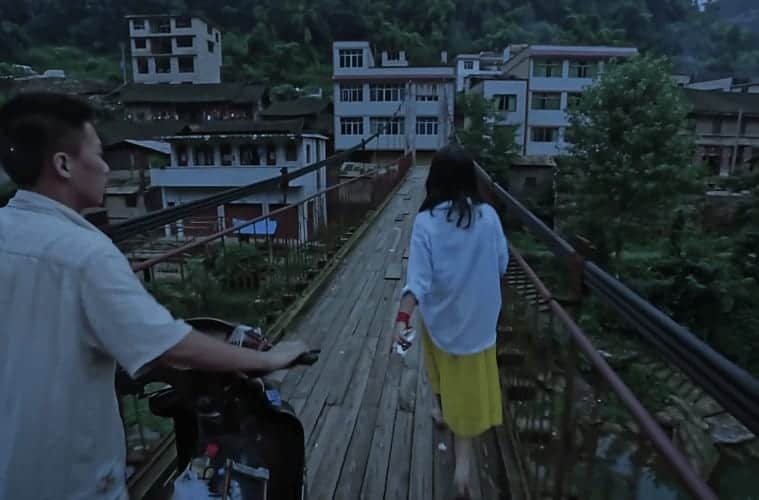
Chen Yongzhong gives a great performance as Cheng Sheng, a man who boils inside, underneath his seemingly calm facade. Luna Kwok as the seamstress also manages to steal the show in the relatively brief time she appears on screen, giving a rather convincing as much as naturalistic performance.
“Kaili Blues” is a genuine art-house film, confusing to follow but visually captivating and a great testament to Bi Gan's directorial abilities.




